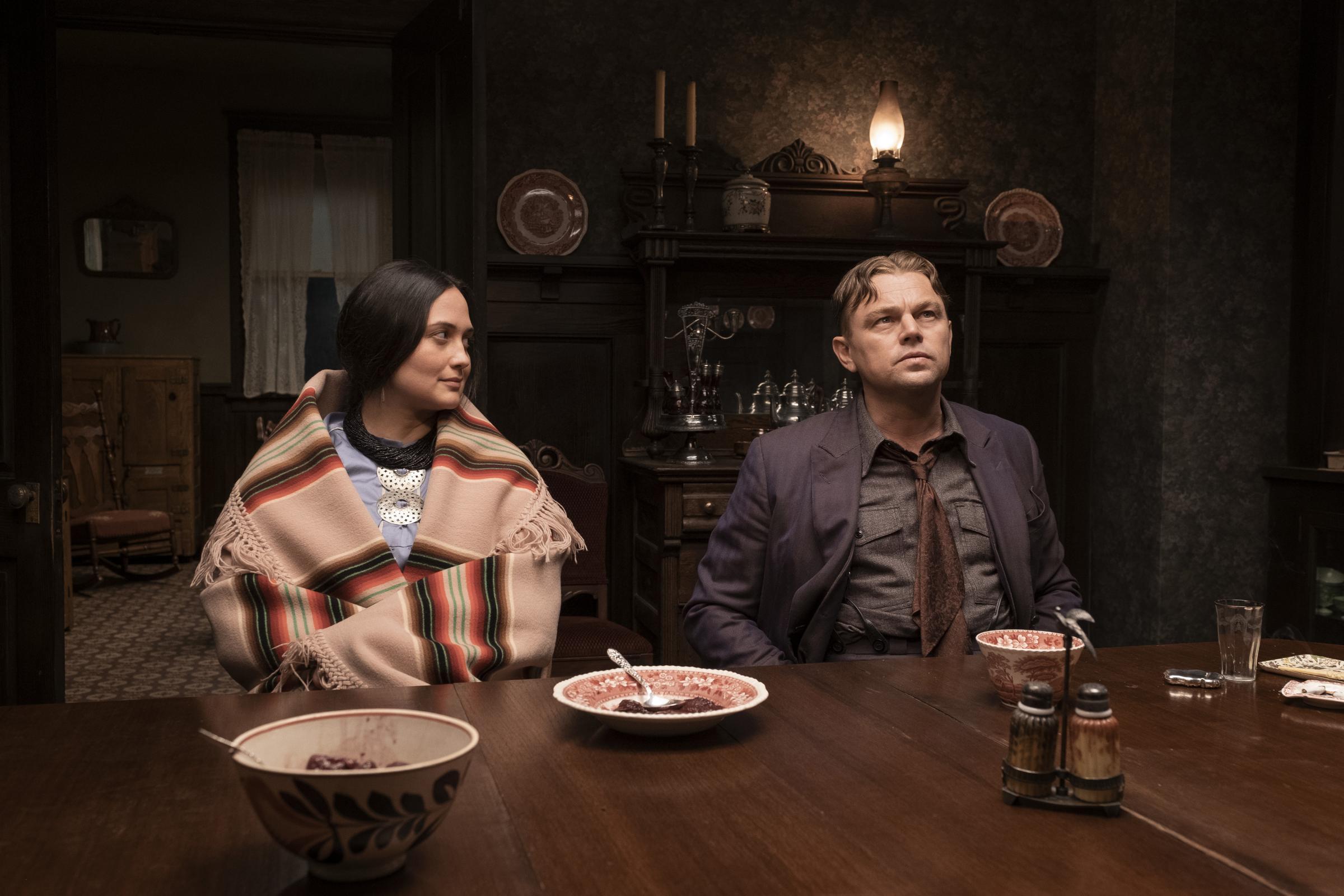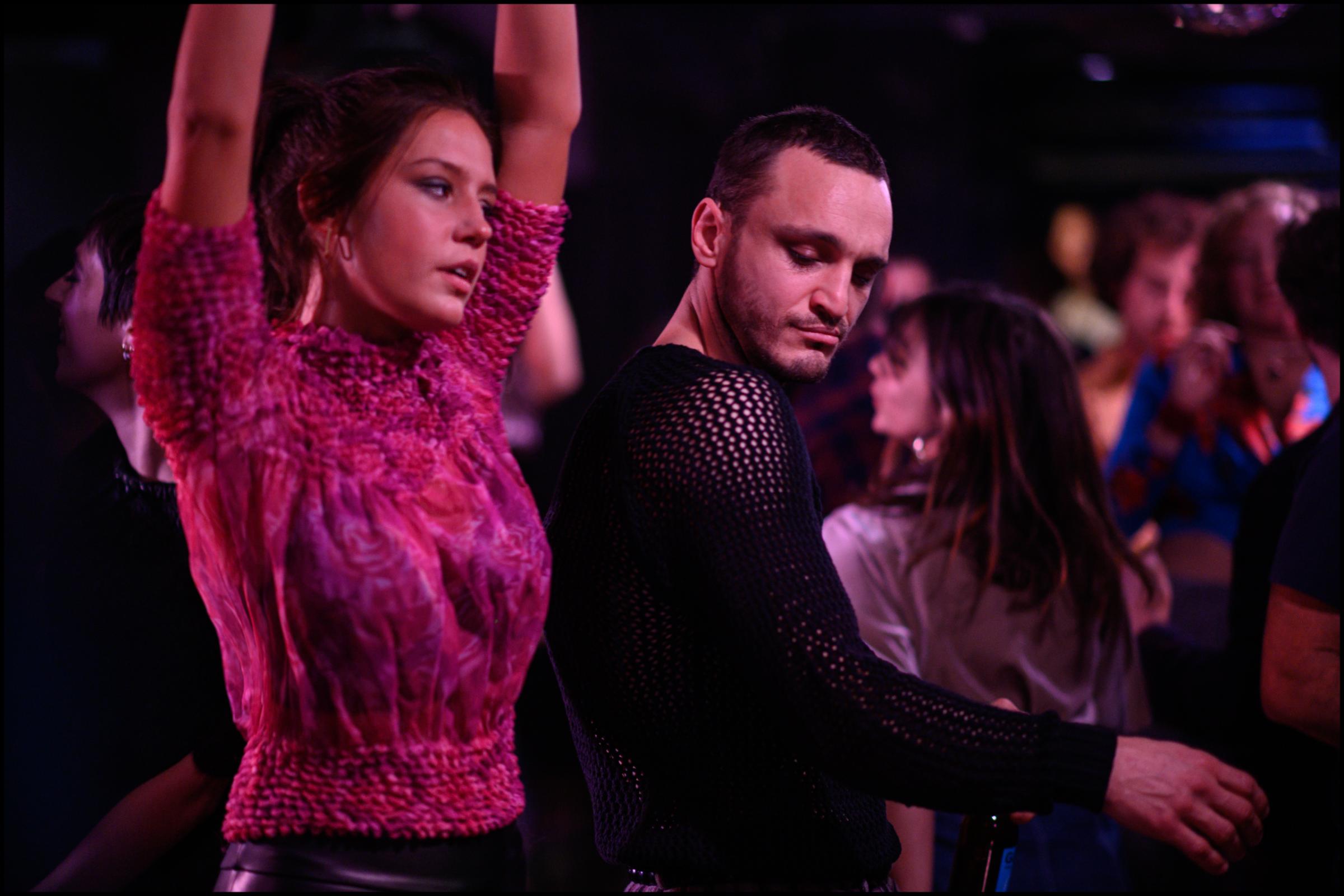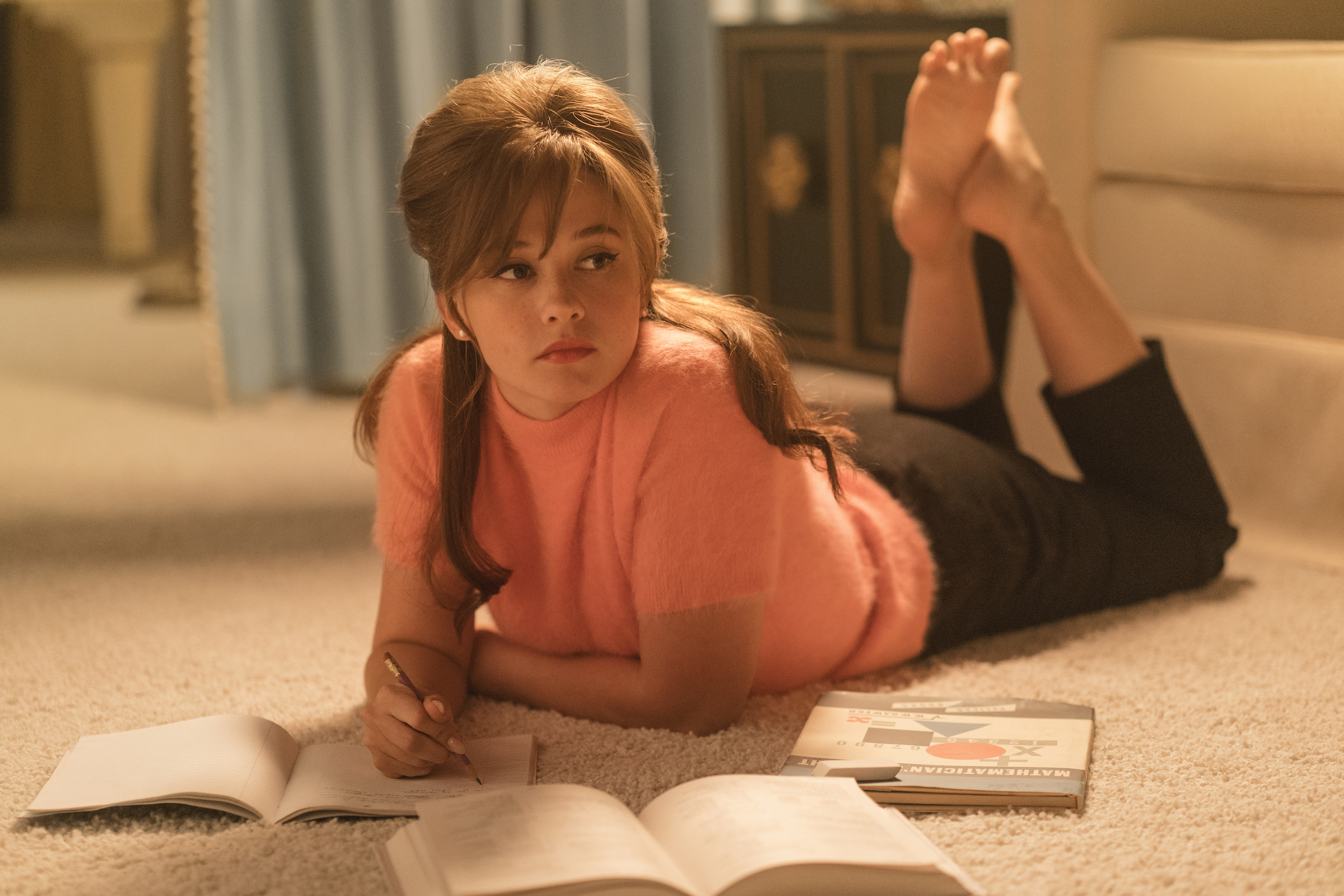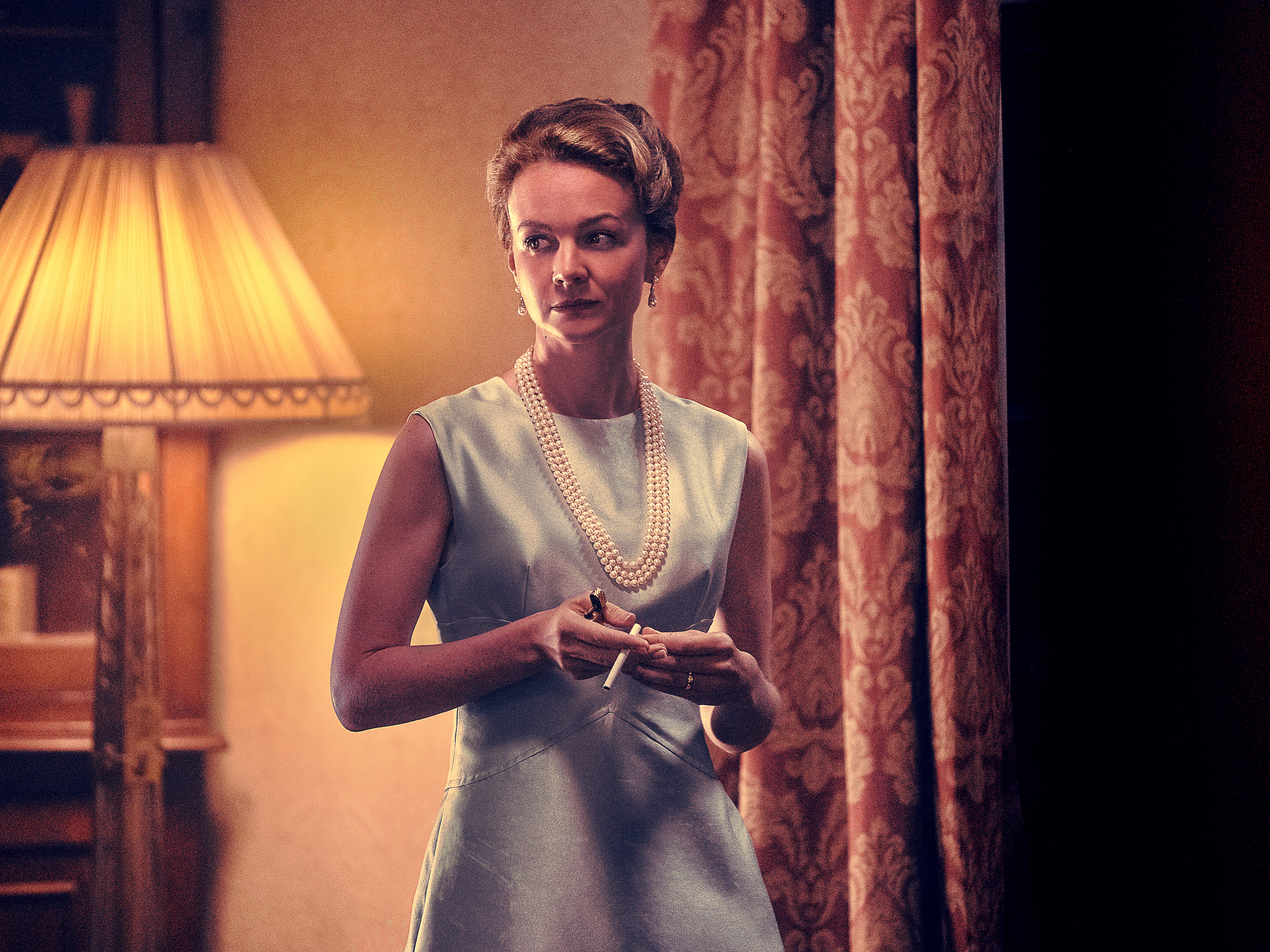
The year now rounding to a close was a good one for movies—for real movies, pictures that didn’t spring from existing IP or court an audience interested only in retreads of things they’d seen and enjoyed before. But then, every year is a good one for actors. Even when the movie offerings by and large disappoint, actors never do—and that’s something to be grateful for anytime, not just at the tail end of 2023, a year in which writers and actors, people who form the backbone of onscreen artistry and entertainment, were forced to fight for the preservation of human expression. You can’t love movies without loving what actors do, their ability, at their best, to reflect all the things that make up our everyday lives: our fears and insecurities, the joy we feel at falling in love and the miracle of managing to stay in it, the bliss of finding beauty in the mundane. Here are 10 of my favorite performances of the year, from people who recognize intuitively that there’s no substitute for the human touch.
More: Read TIME's lists of the best nonfiction books, songs, albums, movies, TV shows, podcasts and video games of 2023.
Kôji Yakusho, Perfect Days

In the days before the Internet, arthouse cinemas used to bring us the world: this is how moviegoers in America would have seen Kôji Yakusho, famous in his home country of Japan, in movies like Tampopo or Shall We Dance? For longtime moviegoers, Yakusho’s performance in Wim Wenders’ sublime Perfect Days is a kind of homecoming. His character, Hirayama, has either retreated from the world or is fully embracing it, depending on your perspective: He’s a Tokyo janitor who cleans public toilets for a living, driving from job to job accompanied by the music streaming from his van’s cassette deck. His daily companions are Patti Smith, Lou Reed, the Kinks, Nina Simone—artists who mark him as a music lover of a certain age, but who also bind the past to the present in an elastic embrace. Yakusho’s performance is a marvel of openness: Hirayama observes all that’s around him—the pattern of light on the waves of a river, the tracery of leaves on a tree he sees every day—as if taking the world in with every breath, and subliminally, he urges us to do the same.
Virginie Efira in Revoir Paris and Other People’s Children

Belgian-French actor Virginie Efira gave extraordinary performances in two French films released in the United States in 2023, Rebecca Zlotowski’s Other People’s Children and Alice Winocour’s Revoir Paris. In the first, she’s a single, childless woman well into middle age who finds happiness in a romantic relationship that seems stable and permanent, though the most surprising development of this new life is her attachment to her boyfriend’s young daughter. In Revoir Paris, she’s a woman who survives a horrific terrorist attack in a Paris café, though she can remember almost none of it; the only way she can step back into the living world is by seeking out others whose lives have also been cracked open by this event. These characters are women in periods of intense transition, and while both find a kind of reconciliatory peace, there are no sudden problem-solving epiphanies for either of them. Efira may be as radiant as a Botticelli angel, but it’s her no-nonsense directness that gets you. In both these performances, she’s a woman feeling her way through life—because having a plan is the surest guarantee you’ll lose your way.
Read more: The 100 Best Movies of the Past 10 Decades
John Magaro, Past Lives

In a way, you couldn’t find a better actor than John Magaro to play the guy standing on the romantic sidelines, waiting for his partner to see that he’s the one for her: everything Magaro does is understated, a little behind the beat, almost as if he couldn’t bear to suffer the embarrassment of being too obvious. But his turn in Celine Song’s Past Lives—as Arthur, the husband of Greta Lee’s Nora, a woman who reconnects with a man who was once her close childhood friend in Korea—goes beyond perfect casting. Arthur’s love for Nora occasionally—and understandably—finds its outlet in pettiness or childish grumbling. Mostly, though, he’s a guy standing by, trying to understand, trying to stay out of the way, but also hoping against hope that he’s not going to lose the person who’s dearest to him. At one point Magaro’s Arthur tries to explain why he loves living with Nora. To him, she makes the world bigger. “I’m wondering if I do the same for you,” he asks aloud, though not in a way that begs for an answer. Instead, he’s a man adrift, maybe temporarily or perhaps not, waving toward shore—not crying to be saved, just hoping not to be forgotten.
Read TIME's review of Past Lives
Lily Gladstone, Killers of the Flower Moon

In adapting David Grann’s terrific historical account of how numerous wealthy Osage Indians were murdered at the hands of greedy white men in early 1920s Oklahoma, Martin Scorsese shifted the focus from the white lawmen who solved the crimes to those who perpetrated them—but he also knew that the heart of his movie was Mollie Burkhart, an Osage Indian whose family was targeted by the murderers. As Mollie, what Lily Gladstone brings to Killers of the Flower Moon is singular and extraordinary: Her watchful presence is the film’s overarching spirit, and to watch her falling in love—cautiously—with the man who will deceive her (Leonardo Di Caprio’s Ernest Burkhart) is to connect with the infinite mystery of romantic attraction. There’s deep trust in her eyes when she looks at him; to see that trust shut down is like watching an eclipse shade the earth with coldness. This is a woman betrayed both by the men in her orbit and, more broadly, by a country that essentially belonged more to her than to anyone. As Gladstone plays her, she’s like a person you’ve met, walked with, talked with—a neighbor rather than a ghost or a metaphor, and one whose tragedy resonates.
Read more: Martin Scorsese Still Has Stories Left to Tell
Franz Rogowski, Passages

How is it that terrible people are also sometimes sensationally charismatic? In Ira Sachs’ half-funny, half-wrenching love-triangle drama Passages, Franz Rogowski plays Tomas, a full-of-himself film director who’s something of a trial to his sweet husband Martin (Ben Whishaw), clearly the more sensible of the pair. Martin takes his partner’s moods and antics in stride—until Tomas pitches headlong into an affair with a young woman, Agathe (Adèle Exarchopoulos), an experimental hetero adventure that’s exciting for him but ends up causing suffering all around. Rogowski walks a potentially shaky line here: Tomas’ selfishness is a kind of cruelty, and it’s inexcusable. But Rogowski lets us see the naked need beneath it all, so raw it’s impossible for us to pass judgment on it. We want to love him too—but from a distance, which is best.
Read TIME's review of Passages
Cailee Spaeny, Priscilla

Priscilla Beaulieu was 14 when she met the 24-year-old Elvis Presley. She fell for him fast and hard, because who wouldn’t? In Sofia Coppola’s Priscilla, based on Priscilla Presley’s 1985 memoir, Cailee Spaeny plays the woman who became the wife of a king, entering a union that would become a kind of prison. Elvis (here played by Jacob Elordi) wanted to love her, but instead sought to control her: her kindness and sensitivity were a magnet for him, but he seemed to think he could keep his treasure under lock and key. Spaeny plays the young Priscilla with a preternaturally adult knowingness; she couldn’t have known what she was getting into, but even in her naivete, she’s never a pushover. We watch as she grows older and wiser and more independent, walking with her through this strange, Tiger Beat dream. Spaeny shows us the downside of that dream, without ever denying its allure. Young people don’t always want what’s best for them, which is part of the point of being young. From behind a glamorous facade of teased hair and winged eyeliner, Spaeny brings that bittersweet truth to life.
Read TIME's review of Priscilla
Bradley Cooper, Maestro

I’ve heard people express disappointment that Bradley Cooper’s Maestro doesn’t tell us enough about Leonard Bernstein’s career, about his track record as both a major conductor and composer, and a man who delighted in educating young people (and older ones) about the joys of classical music. But the movie Cooper has made, focusing largely on Bernstein’s complicated and sometimes stormy marriage to actor Felicia Montealegre (played by Carey Mulligan), is arguably more daring and more compelling than any standard biopic might have been, and Cooper’s performance, as Bernstein, is Exhibit A. The early controversy over the prosthetic nose Cooper chose to wear for the role—a dustup that had people taking sides long before they’d even seen the movie—obscured a central point: by choosing to wear the nose, Cooper wasn’t grabbing attention for himself; it was more a way of melting into the role, of partially obscuring himself so that Bernstein the man—brilliant, egotistical, and exuberant—could step forward. What’s surprising about the performance is the way Cooper, rather than grandstanding, recedes into the role: the way he looks at Mulligan’s Felicia, a human being who didn’t align neatly with Bernstein’s sexual orientation, brings home the truth that none of us really knows how to love “neatly.” Sometimes his lovesickness is plain; other times, we see him lashing out at what he sees as constraints on his freedom. This is a performance of restraint and humility, in the service of a real-life figure who didn’t hold back.
Greta Lee, Past Lives

In Celine Song’s wistfully acute romance Past Lives, Greta Lee’s Nora, a Korean-born playwright who emigrated with her family to Toronto as a child and is now making a go of it in New York, reconnects with a childhood sweetheart (Teo Yoo) who represents, among other things, the culture she left behind. Her husband, also a playwright (played by John Magaro), stands by as Nora sorts out her feelings for her old friend. Past Lives is a movie about how we can’t always be sure what we want in life, even when we think we’ve figured everything out. Lee captures Nora’s sudden, surprising transitory state beautifully: she’s a woman blindsided by all she thought she’d happily given up, including, to a degree, her Korean identity. But this story is universal, too. Life’s possibilities are vast, and being open to them is part of what keeps us ticking. Lee brings that heartbeat to the surface; her face is a world of wonder and confusion, sometimes both at once. The changes we think we can’t survive are often the ones that make us feel most alive.
Read more: Celine Song and Greta Lee on Past Lives’ Alchemy of Memoir and Artistry
Cillian Murphy, Oppenheimer

What Cillian Murphy does in Christopher Nolan’s Oppenheimer is a reminder that the mechanics of acting for the big screen—a very big screen, if you saw the picture in IMAX—are as delicate as a beetle’s wing. Nolan knows he can’t tell the story of the man often called the father of the atomic bomb without folding in several equally important stories: that of how the U.S. government, once it no longer needed him, opted to question his loyalty, and of his own moral anxiety over the horrors he’d helped unleash upon the world. J. Robert Oppenheimer is a huge figure, but Murphy’s performance draws him close—it’s a work of astonishing intimacy. Murphy captures Oppenheimer’s jittery awkwardness as a young student at Cambridge, homesick for America; his swaggering charisma as a brainy Berkeley heartthrob; his later anguish at the role he’d played in developing a weapon that could—and could still—signal the end of the world. Murphy’s skin has a papery, translucent quality; it’s as if he were laying everything bare before us, allowing us to see that a man who’s leagues smarter than we’ll ever be still has the same network of veins, arteries, and nerve endings that keep all of us going. This is how you plumb the depths a big figure for the big screen: by opening a portal between us and that image, a beam of light that shrinks the space between a giant and little old us.
Read TIME's review of Oppenheimer
Carey Mulligan, Maestro

Bradley Cooper’s Maestro, in which Cooper himself plays conductor-composer Leonard Bernstein, isn’t really a biopic. More accurately, it’s a portrait of a marriage, one that would have been thought of as radical in its day, and maybe even in our own. Early in Maestro, Bernstein—who was gay or bisexual, inasmuch as the distinction can be made by any outsider—meets the young, radiant Costa Rican-Chilean actor Felicia Montealegre (Carey Mulligan), and you can practically see the lightning bolt hit. The charge between them is immediate and undeniable. Felicia knows what Leonard is about, but she loves him anyway—they decide to try their luck at marriage, at raising a family, even though Leonard can’t help straying. Mulligan’s performance is both elegant and stripped-bare, as vibrant as a lit cigarette floating in the dark. Her Felicia has a grand capacity for delight, but she also knows her limits: once you’ve seen the movie’s Thanksgiving Day scene, the one in which Felicia lays out her husband’s flaws in a devastating (and, probably, deserved) soliloquy, you’ll never forget it. With her ladylike bearing and impeccable manners, Mulligan’s Felicia seems to be the picture of propriety—until you realize she’s set the movie on fire.
More Must-Reads from TIME
- How Donald Trump Won
- The Best Inventions of 2024
- Why Sleep Is the Key to Living Longer
- Robert Zemeckis Just Wants to Move You
- How to Break 8 Toxic Communication Habits
- Nicola Coughlan Bet on Herself—And Won
- Why Vinegar Is So Good for You
- Meet TIME's Newest Class of Next Generation Leaders
Contact us at letters@time.com